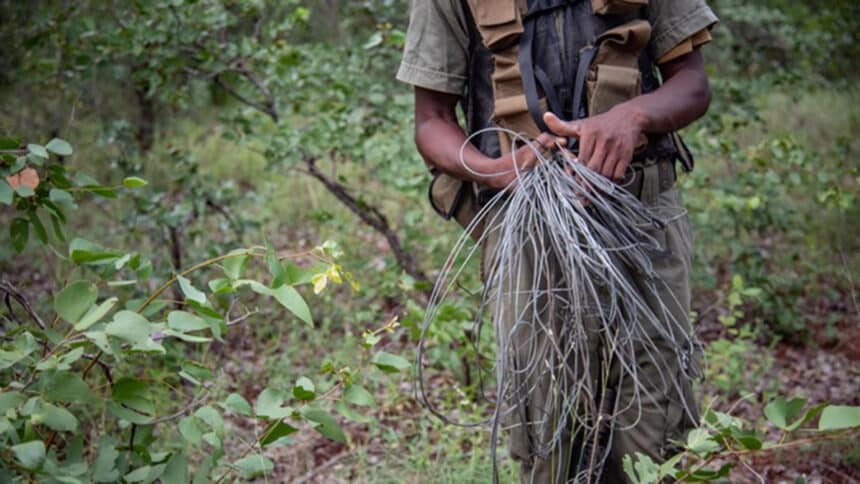Communities in wildlife protected areas of Mababe and Khwai are said to have a hungry appetite for bush meat and continue to set illegal traps for wild animals.
The problem persists despite ongoing de-snaring operations by anti poaching units in the area as well as the threat of hefty fines for those found guilty of the offence.
Voicing his concern during the full council meeting in Maun last week, North West District Council (NWDC) Chairperson, Itumeleng Kelebetseng revealed at least 17 snares were discovered in the area and removed in July alone.

“I implore you to speak to our communities to stop the cruel illegal harvest and conserve wildlife for the generations to come,” he urged his councillors.
“There is a high number of wildlife snaring in the Mababe/Khwai area and the public is advised to refrain from this illegal killing of wildlife by wire snares,” continued Kelebetseng.
The latest find comes after over 100 wire traps were discovered in the same area earlier in the year.
At the time, a community escort guide from Mababe, Gomolemo Oduetse told the media they discovered an increase in snaring since 2022. To combat this, Oduetse revealed a joint operation comprising law enforcement agents and community groups have been patrolling the area, hunting-out the traps in order to save wildlife.
Some of the animals injured by the snares included a lioness, a zebra and wild dogs.
Warning this could have a disastrous effect on the area’s flourishing tourism trade, Kelebetseng added, “Our district is regarded as a final tourist destination therefore this is tarnishing the tourism image. Tourists are not to see animals with snares and this is seen as cruelty hence they will prefer to visit places where wild animals roam free.”
Famous the world over, Okavango Delta is home to thousands of animals, birds and plant species. However, the wildlife protected Delta’s inhabitants includes several communities, who rely heavily on bush or game meat for their nutritional needs.
Snares are often made from cheap materials which can be easily accessible, such as wire and rope and can be set by one person.
In Botswana, it is a crime that carries a possible P5, 000 fine or even a five-year jail sentence, or even both.














